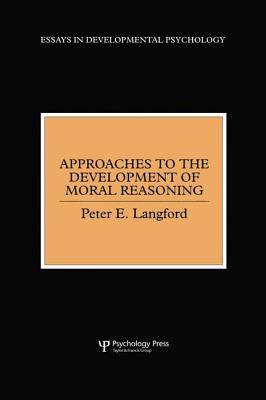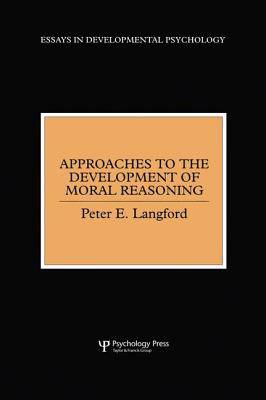
- Retrait gratuit dans votre magasin Club
- 7.000.000 titres dans notre catalogue
- Payer en toute sécurité
- Toujours un magasin près de chez vous
- Retrait gratuit dans votre magasin Club
- 7.000.0000 titres dans notre catalogue
- Payer en toute sécurité
- Toujours un magasin près de chez vous
Description
The first part of the book offers a survey of current approaches to the development of moral reasoning: those of Freud, ego psychology, Piaget and Kohlberg. The approach of Kohlberg has been popular because he was able to give an impressive account of findings from the key method of interviews, the other crucial method being naturalistic observation of moral discourse. The accounts of interview evidence given by ego psychology and Piaget were less comprehensive and less impressive. Naturalistic studies have either been impressionistic or less detailed in their methods of analysis. The second part of the book argues that the impressive nature of Kohlberg's later evidence for his view that moral reasoning passes through a sequence of stages is in part illusory, because his theory predicts that specific types of reply will show specific developmental patterns. However, as data are always reported in terms of stages, which amalgamate very disparate types of reply, it is impossible to know whether the specific types of reply follow their predicted developmental courses or not. Reasons given for assigning given types of reply to a stage are also often doubtful. This leads to discussion of studies that have reported findings in terms of specific types of reply (weakly interpretive methods), as opposed to Kohlberg's stage-based and strongly interpretive methods. Findings from these disconfirm Kohlberg's theory at several crucial points. The second and third parts of the book also examine findings from non-Kohlbergian interviews and other methods, again advocating that weakly interpretive and largely descriptive presentation of findings is preferable to strongly interpretive techniques. It is argued that a wide variety of mechanisms suggested by the theories outlined in the first part of the book, as well as others drawn from general theories of personality development, are able to explain existing descriptive developmental findings. The task for the future is to assess the relative importance of these mechanisms.
Spécifications
Parties prenantes
- Auteur(s) :
- Editeur:
Contenu
- Nombre de pages :
- 256
- Langue:
- Anglais
- Collection :
Caractéristiques
- EAN:
- 9781138882980
- Date de parution :
- 22-05-15
- Format:
- Livre broché
- Format numérique:
- Trade paperback (VS)
- Dimensions :
- 152 mm x 229 mm
- Poids :
- 349 g

Les avis
Nous publions uniquement les avis qui respectent les conditions requises. Consultez nos conditions pour les avis.






